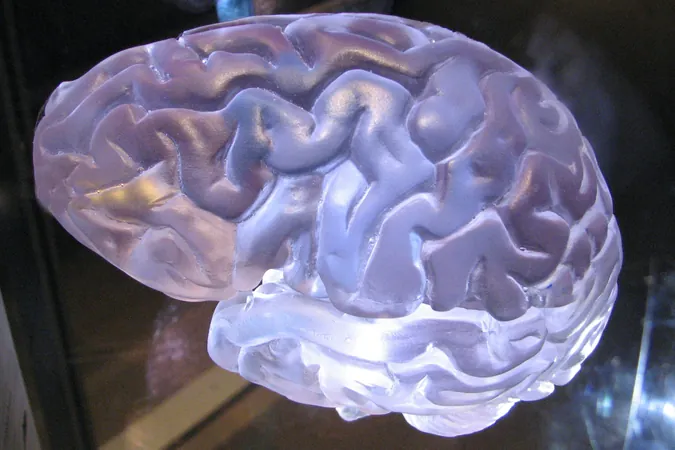
Why Traumatic Brain Injury Should Be Treated Like a Chronic Condition: A Call for Systematic Change
2024-11-05
Author: Daniel
Introduction
A recent commentary published in the Journal of Neurotrauma has ignited a crucial conversation about the long-term management of traumatic brain injury (TBI). It calls for TBI to be recognized as a chronic condition, akin to diabetes, asthma, depression, and heart failure. This shift in perspective could revolutionize patient care and support for millions of survivors and their families.
Current State of TBI Management
Currently in the United States, an alarming 2.8 million people sustain traumatic brain injuries each year, with a significant portion facing lifelong challenges. Unfortunately, the healthcare system primarily concentrates on the acute phase immediately following the injury—typically the first year—but many individuals require ongoing assistance and care that can span decades. The authors of the commentary argue that adapting existing coordinated care models, already effective for various populations, is essential for fostering better communication among brain injury specialists and primary care physicians. This change could lead to improved long-term patient care.
Causes and Recovery of TBI
The origins of traumatic brain injury are numerous: falls, sports injuries, violence, and accidents involving motor vehicles are among the most common causes. Recovery can be complicated, with results varying significantly based on injury size, severity, location, and individual factors such as age and previous head injuries.
Vulnerable Populations
Certain groups are more susceptible to TBI, including racial and ethnic minorities, service members, the homeless, those in correctional facilities, victims of intimate partner violence, and residents of rural areas. Alarmingly, many healthcare providers mistakenly believe that any impairments following TBI are static once a patient's recovery plateaus. However, the commentary asserts that the journey of recovery is often dynamic, with potential fluctuations in symptoms and needs over time.
A Game-Changing Perspective
Dr. Kurt Kroenke, a senior author of the commentary and a physician at the Regenstrief Institute and the Indiana University School of Medicine, emphasized that recognizing TBI as a chronic condition is game-changing. This approach acknowledges that for many individuals, the struggle does not end after 12 months. Instead, it provides a structured environment for ongoing monitoring and support, which is crucial for patient recovery and quality of life.
Implications for Healthcare Systems
Crucially, the commentary highlights that Medicare has recently included TBI as one of the 18 recognized chronic conditions. This pivotal decision could usher in a new era of care, encouraging healthcare systems to better integrate specialists with primary care providers, thus fostering collaborative approaches that have proven effective for other chronic conditions. Healthcare insurers may also be more inclined to cover extended care periods, essential for many survivors who require years of support.
The Need for Personalized Care
As Dr. Flora M. Hammond, co-author and leading specialist in Physical Medicine and Rehabilitation, points out, treating TBI as a chronic condition necessitates a proactive approach that adapts to individual needs over time. By emphasizing personalized and coordinated care, this new perspective could lead to enhanced well-being for those affected by TBI.
Conclusion
Taking this approach not only allocates more resources to address the ongoing challenges of living with brain injury but also increases awareness among professionals and the public about optimizing health outcomes for TBI survivors. The commentary underscores a critical need for systemic change—one that could redefine how we view and manage traumatic brain injuries for generations to come.
Are we ready to change the narrative on traumatic brain injury and provide the support that millions of survivors urgently need? The future of TBI care may depend on it.


 Brasil (PT)
Brasil (PT)
 Canada (EN)
Canada (EN)
 Chile (ES)
Chile (ES)
 España (ES)
España (ES)
 France (FR)
France (FR)
 Hong Kong (EN)
Hong Kong (EN)
 Italia (IT)
Italia (IT)
 日本 (JA)
日本 (JA)
 Magyarország (HU)
Magyarország (HU)
 Norge (NO)
Norge (NO)
 Polska (PL)
Polska (PL)
 Schweiz (DE)
Schweiz (DE)
 Singapore (EN)
Singapore (EN)
 Sverige (SV)
Sverige (SV)
 Suomi (FI)
Suomi (FI)
 Türkiye (TR)
Türkiye (TR)